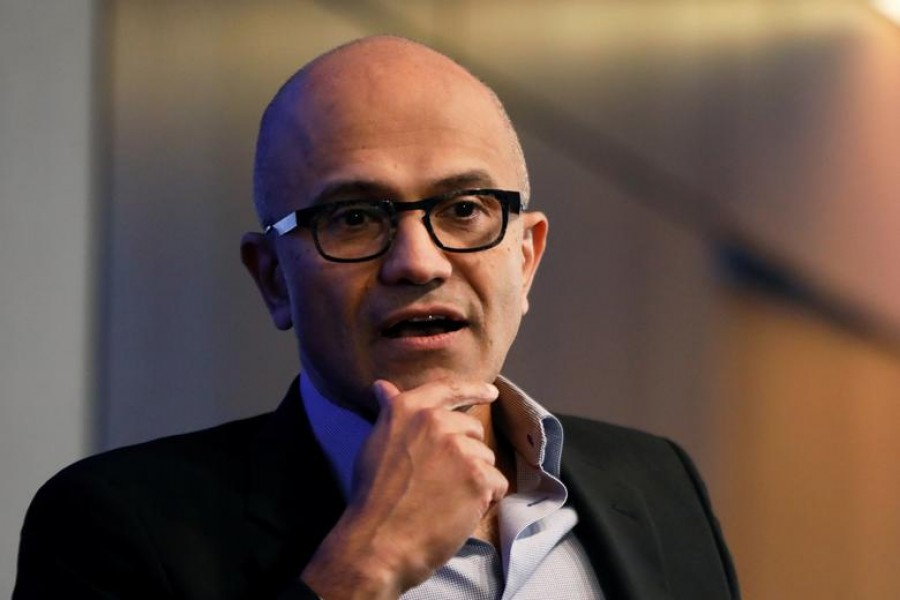Would love to see a Bangladeshi immigrant as next Infosys CEO: Microsoft boss on CAA

Published :
Updated :

Calling India's controversial new citizenship law 'sad', Microsoft boss Satya Nadella said he would love to see a Bangladeshi immigrant succeed in the country's technology industry.
The India-born executive's comments come amid ongoing, sometimes violent, protests against the law.
The Citizenship Amendment Act (CAA) has been criticised as it is seen as discriminating against Muslims.
Speaking at a Microsoft event for editors in New York, Mr Nadella said: "I think what is happening is sad, primarily as sort of someone who grew up there... I think it's just bad," according to BuzzFeed.
"I would love to see a Bangladeshi immigrant who comes to India and creates the next unicorn in India or becomes the next CEO of Infosys," he said.
Mr Nadella grew up in Hyderabad - India's technology hub - but is now an American citizen, reports the BBC.
Soon afterwards Microsoft India issued a statement quoting Mr Nadella where he reiterates his hope for "an India where an immigrant can aspire to found a prosperous start-up".
But adds that "every country will and should define its borders, protect national security and set immigration policy accordingly."
The CAA, which was implemented on 10 January, fast-tracks citizenship applications by non-Muslims from India's neighbouring Muslim-majority nations of Pakistan, Afghanistan and Bangladesh.
Along with a proposed national register of citizens, critics say the CAA will discriminate against India's Muslim minority population.
The legislation has triggered weeks of sometimes violent protests in the world's second most populous country.
Huge demonstrations have been held in the capital Delhi, as well as in the major cities of Mumbai, Kolkata (formerly Calcutta), Bangalore and Hyderabad.
Protests in the northern cities of Kanpur and Muzzafarnagar saw violence and several deaths.


 For all latest news, follow The Financial Express Google News channel.
For all latest news, follow The Financial Express Google News channel.